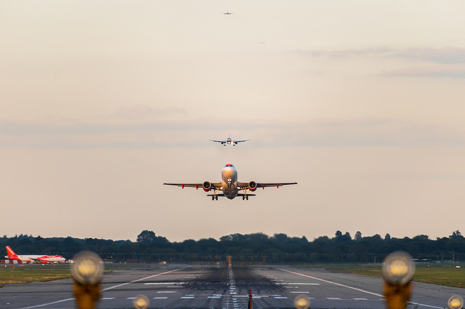
IATA has launched a legal action in the Netherlands, challenging the implementation of a new slot rule (see our press release for more information). We asked our Area Manager, France, Belgium, the Netherlands & Southern Europe, Robert Chad, to explain why we had taken this unusual step.

A new slot allocation Policy Rule “Additional Allocation Criteria” was implemented by the Dutch coordinator - Airport Slot Coordination Netherlands (ACNL) - to allocate slots for the next Summer 2022 season (which takes place by 4 November, 2021) for the three Dutch slot coordinated airports - Amsterdam Schiphol, Eindhoven and Rotterdam The Hague.
IATA and many airlines do not agree with the content and need for this Rule. Furthermore, it poses significant harm to the independent, impartial role of the Slot Coordinators in the EU. The Rule has no equivalent by any other slot coordinator and fundamentally differs from the globally adopted slot allocation process.
The Rule allows the airport management Royal Schiphol Group (RSG) to directly influence all future new slot allocation for their three Dutch airports Eindhoven, Rotterdam and Amsterdam Schiphol through a destination list. This denies airlines many of the criteria that should be used to make allocation decisions, thereby significantly departing from EU legislation and the Worldwide Airport Slot Guidelines.
Absolutely! IATA, low-cost airlines, leisure, network and cargo carriers have all been providing input to the coordinator and the Coordination Committee. We were all clear that we disagreed with the approach and the process being implemented. Rather than take this commentary on board, the coordinator refused to change course or amend the policy materially.
The airlines and several airline associations such as Airlines for Europe, Airlines for America and the Cargo Airlines Association have also raised the issue formally with the Dutch Ministry, the EU Commission and ACNL to no avail. That’s why we’ve taken this rare legal action step.
The Coordinator has unilaterally decided that they will allocate all future slots in a single priority order at the three airports, in advance of receiving and understanding the demand for the slots when airlines submit their applications. There are lots of problems with this, but let’s use some illustrations.
The Rule outlines the primary priority for allocating future slots is a destination list authored by the airport managing body, Royal Schiphol Group, and simply adopted by ACNL. The destination list seeks to prioritize slot applications to these routes which will limit any future access to other routes given these airports are all highly congested. The destination lists generally distribute international traffic to Schiphol, and short haul regional to Eindhoven and Rotterdam. This discriminates how carriers can access the airports according to the customer demand they want to serve. For example, only request for services from Athens to Rotterdam and Eindhoven will be prioritized and no other.
The Rule requires airlines to use the slots allocated in line with these routes for a minimum of one season without a change of route. This is not in accordance with the EU Slot Regulation. Slots by definition are not route specific.
The independence of the slot coordinator has been compromised. The Worldwide Airport Slot Guidelines are clear on the need to eliminate direct influence on the allocation of slots by interested parties through discussion of business strategy and planning prior to submission of slot requests. This is to ensure the allocation of slots is based purely on the demand and capacity presented each season. The priority destination lists represent a complete relinquishment of the independence of the coordinator and changes the role of the coordinator to primarily meet the needs of the airport they serve.
The approach adopted by ACNL puts at risk traffic right agreements, such as the recently agreed ASEAN-EU Comprehensive Air Transport Agreement. Countries like Singapore, Laos, Brunei, and Myanmar are now considered of low importance by the Netherlands and may not be able to access future slot capacity given they do not feature on the destination list for allocation. The Policy breaches this right to freedom of access to EU airports by airlines and will prevent airlines from even applying for slots that are not on the destination list.
The Dutch court recognized the urgency of the matter and the hearing is scheduled to take place on 29 October. If our legal action is successful, then the Rule will not be implemented and ACNL will need to return to allocating slots in line with the European Slots Directive and the Worldwide Airport Slots Guidelines.
Additional information: